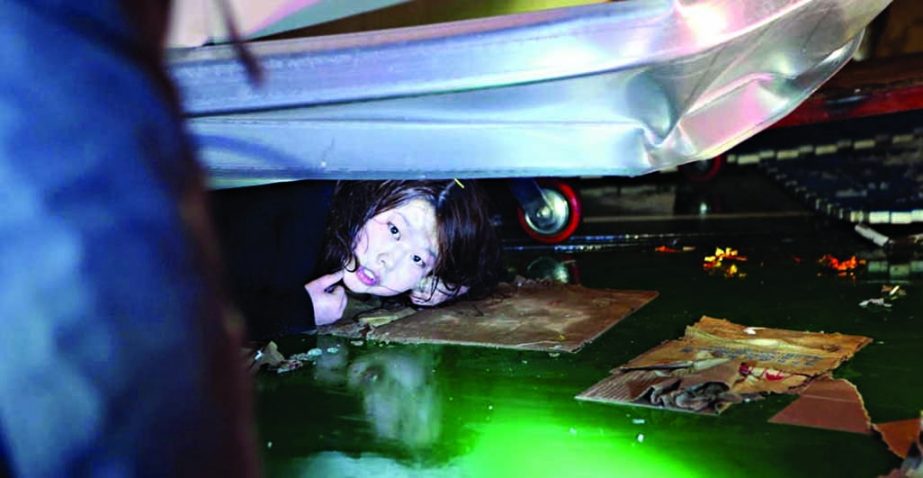
AP, South Korea :
Emergency staff worked through the night in snow and sleet to pull survivors from the debris of an auditorium whose roof collapsed under the weight of snow, killing 10 people and injuring 100, most of them recently enrolled freshmen of a South Korean university, officials said Tuesday.
The students had gathered at the auditorium of a holiday resort for a welcoming ceremony Monday night when the roof came crashing down, leaving twisted metal and debris of concrete and wood.
Weather officials say the southeastern region saw the heaviest snowfall this month since measurements began three years ago.
Bad weather hampered rescuers who had to reach the site outside the historic tourist city of Gyeongju on icy roads. Working all night, they extricated survivors, many of them injured, and rushed them on stretchers to waiting ambulances.
Family members and friends of the dead gathered in a hospital morgue in the nearby city of Ulsan. Kim Pan-su fought back tears as he talked about his daughter, Kim Jin-sol, who was one of the dead. He said he had called his daughter’s friends when he couldn’t reach her.
“Her friends said that she … was safe but that she couldn’t escape. This is the only thing I was repeatedly told,” Kim said. “I felt that something was weird, so I went to the university … I had just parked my car in the parking lot when they called the names of people that died, including my daughter’s.” President Park Geun-hye ordered an investigation as well as safety checks of buildings near the country’s east coast, which has seen heavy snow this winter. The resort’s owner, Kolon Group, believes that snow likely caused the collapse but is examining more specific causes. About 560 students from Busan University of Foreign Studies had gathered for a two-day freshman orientation at the Manua Ocean Resort when a crack appeared in the auditorium ceiling before the collapse. Nine students and another person were killed, two people were seriously injured and 103 lightly injured, said Jung Yoon-han, director of the disaster management department at the Ministry of Security and Public Administration. The students had just finished dinner and were gathering for recreational activities at the time of the collapse, Byun Ki-chan, head of the international exchange department at the university, told reporters Tuesday. Some managed to escape after noticing the crack but others couldn’t leave in time, he said.
Lee Jae-soo, a spokesman at Kolon Group, said the auditorium hasn’t received an outside safety examination since being completed in 2009 because the building isn’t subject to such external inspections under the current law. But Kolon has conducted an internal safety inspection every month, Lee said by phone.
He said the auditorium was built by South Korean construction company Songwon, which broke ground in June, 2009 and completed the project in less than three months. The resort started using the auditorium in September 2009. He said the fact that the government granted permission to use the building means it was safe. Calls to Songwon weren’t immediately returned. Kolon Group chairman Lee Woong-yeul and other officials visited the accident site and apologized, bowing deeply. “We especially feel a heavy responsibility about the fact that the young people who were about to begin college life died before their dreams began to blossom,” Lee told reporters. Kolon Group says it is South Korea’s 30th biggest business group and includes a chemical company.
Lee Woo-chan, a construction official in Gyeongju’s city government, said that a building’s safety is checked by architects paid by the building’s owner. Downtown Gyeongju received 34.8 centimeters of snow this month, the highest since records started being kept in August 2010, said Cho Kuh-hee, an official with the Korea Meteorological Administration. There’s no measuring equipment in the mountainous area where the resort is located, but snowfall there was likely to have been heavier than the downtown area. Gyeongju is a popular tourist destination that served as the capital of one of the Korean Peninsula’s ancient kingdoms. Located at an altitude of about 500 meters (1,640 feet), the Manua Ocean resort is at the foot of Dongdae Mountain, according to the resort’s website.

